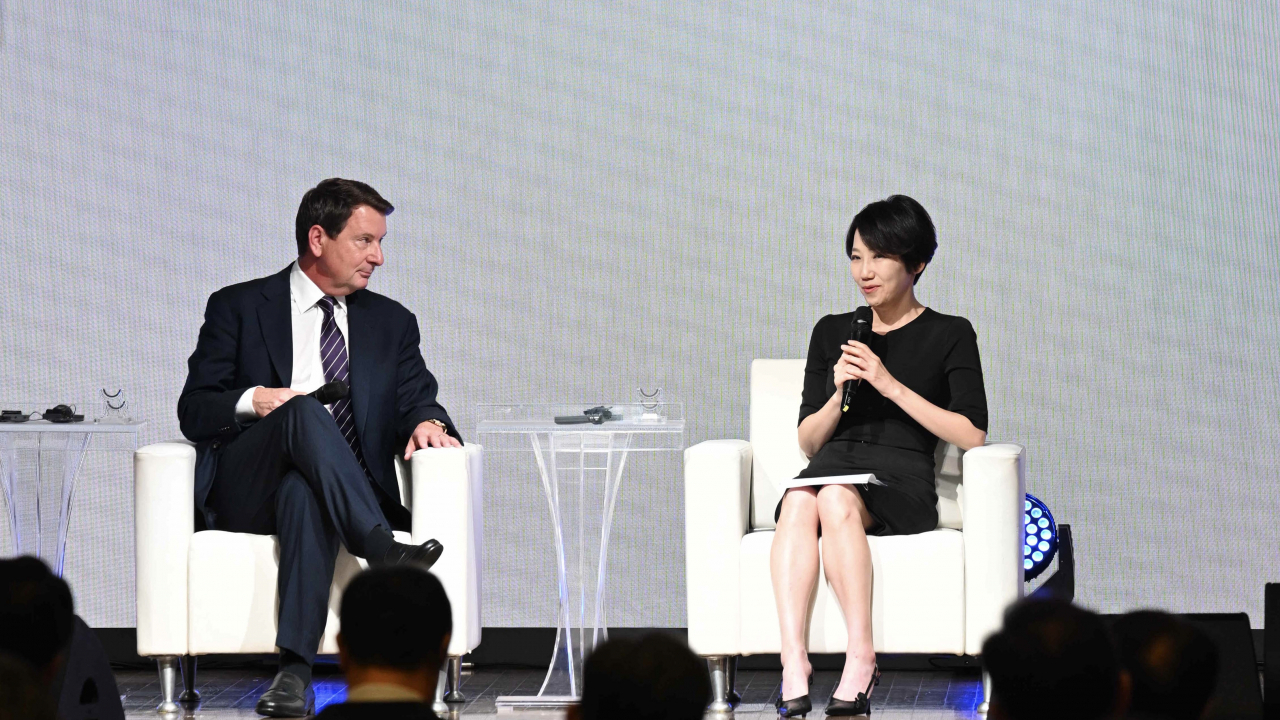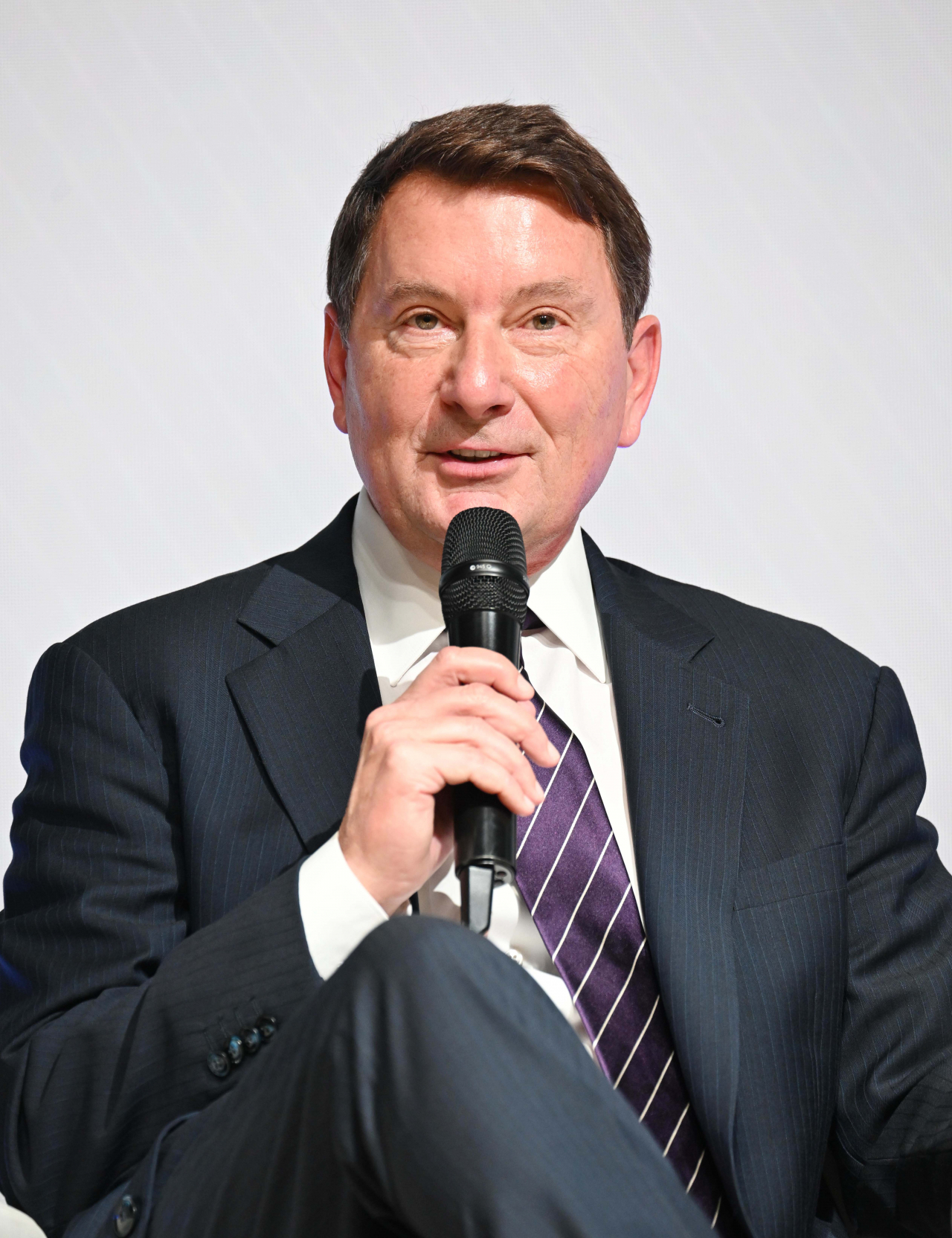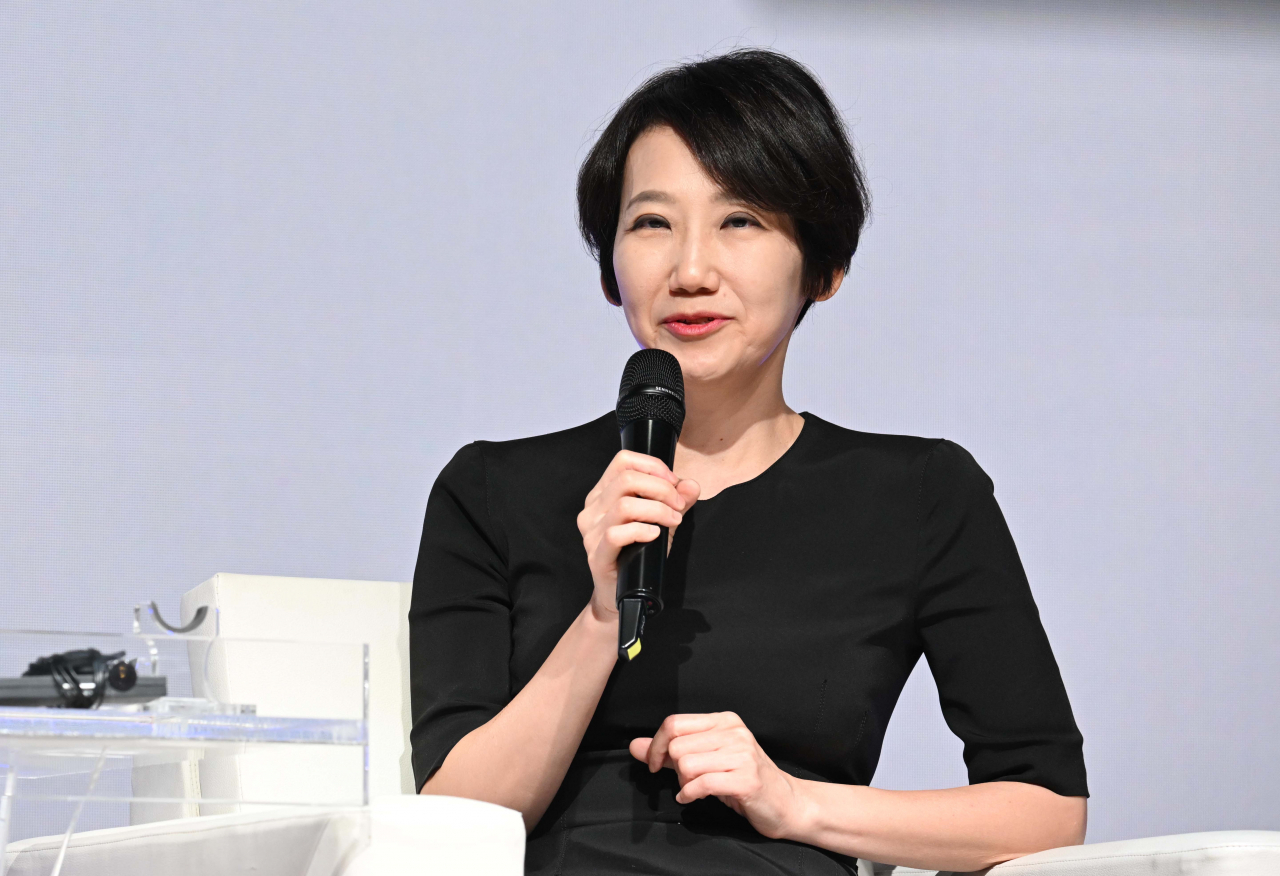Industrials
[HIT Forum] Strategic lobbying critical for Corporate Korea: top Washington lobbyist
 |
Brian Ballard (left), president of the Washington lobbying firm Ballard Partners, participates in a special session with Korean political scientist Kim Ji-yoon at The Korea Herald HIT Forum held at the Korea Chamber of Commerce and Industry in Seoul on Thursday. (Lee Sang-sub/The Korea Herald) |
Corporate Korea should engage in strategic lobbying at both federal and state levels to navigate the US’ regulatory landscape and protect its interests amid shifting political dynamics.
This was the key takeaway from a special session at The Korea Herald HIT Forum, held at the Korea Chamber of Commerce and Industry in Seoul on Thursday, as seasoned US lobbyist Brian Ballard shared his insights on the art of business diplomacy in the run-up to the US presidential election this year.
During the session moderated by political scientist Kim Ji-yoon, Ballard first touched upon the volatility of the 2024 election. With President Joe Biden's unexpected withdrawal and Vice President Kamala Harris leading the Democratic ticket against former President Donald Trump, uncertainty is at an all-time high.
 |
Korean political scientist and US politics expert Dr. Kim Ji-yoon speaks at The Korea Herald HIT Forum held at the Korea Chamber of Commerce and Industry in Seoul on Thursday. (Lee Sang-sub/The Korea Herald) |
“Harris is gaining some momentum, but Trump is well-positioned in swing states, especially with the Republican voter base energized. It will be a tough, close race, but I remain optimistic about Trump’s chances,” Ballard, who has connections to the Trump administration, said.
Kim added that polling trends show Harris leading Trump by a narrow margin but warned that national polls often underrepresent Trump’s support.
 |
Korean political scientist and US politics expert Dr. Kim Ji-yoon speaks at The Korea Herald HIT Forum held at the Korea Chamber of Commerce and Industry in Seoul on Thursday. (Lee Sang-sub/The Korea Herald) |
“We may not know the final outcome until the polls close,” she said, alluding to the 2016 election where Trump defied polling expectations.
A major theme of the session was the importance of effective lobbying, particularly for companies unfamiliar with the complexities of US regulation. Kim pressed Ballard on how foreign companies can better navigate the American political landscape, where lobbying plays a central role.
“My number one recommendation: hire a competent lobbyist,” Ballard said bluntly. “The US regulatory environment is complex and varies widely between states. To shape that environment, you need strong government relations.”
Ballard stressed that lobbying in the US is a transparent and highly regulated practice. “We have to register, disclose our fees, and file reports under the Foreign Agents Registration Act if we represent foreign clients. Everything is open to scrutiny,” he explained.
“It’s about making sure businesses have a voice in the legislative process, ensuring that laws and regulations are balanced and fair.”
Ballard also pointed out the importance of long-term relationships in Washington. “The work we do with Congress, federal agencies and even state governments is ongoing. You can’t just show up in DC once or twice and expect results. Building influence takes time,” he said.
Ballard’s advice extended beyond Washington.
"Most businesses underestimate how important state politics are," Ballard said. “In many cases, it’s more important than federal politics. If you’re setting up operations in Florida, for example, you need to know who’s in charge locally -- people like Gov. DeSantis or state legislators. You have to build strong relationships at the state level,” Ballard said.
“When I studied American politics, my professor always emphasized the importance of state politics over federal politics,” Kim added.
As the conversation turned to trade, Ballard addressed the concerns many Korean businesses have about a potential second Trump presidency, particularly regarding Trump’s proposed 10 percent universal tariff on imported goods and 60 percent tariff on Chinese imports.
“I don’t think it’s going to be as simple as imposing those tariffs and leaving them there,” Ballard said. “For Trump, tariffs are a starting point for negotiations. We saw this during his first term when South Korea was able to secure exemptions. I expect a similar approach if he’s reelected. But China will likely face stricter measures.”
Kim brought up the Inflation Reduction Act and its importance to Korean investors, particularly in the electric vehicle and semiconductor sectors. There are concerns that a second Trump administration may repeal or alter some of its key provisions.
Ballard, while not predicting a full repeal, suggested that some aspects of the law, such as those perceived as contributing to inflation, could be targeted for revision.
Kim then asked Ballard what advice he had for companies unfamiliar with state-level lobbying. Ballard’s answer was simple: “Do your research and find the right partners. Many firms jump in without understanding the local political landscape and pay the price later. You need to know who’s in charge, what the local concerns are, and who the key influencers are.”
By Moon Joon-hyun (mjh@heraldcorp.com)






![[From the Scene] Gigantic Olive Young store lures young trend-setters in Seongsu](http://res.heraldm.com/phpwas/restmb_idxmake.php?idx=151&simg=/content/image/2024/11/21/20241121050065_0.jpg)

